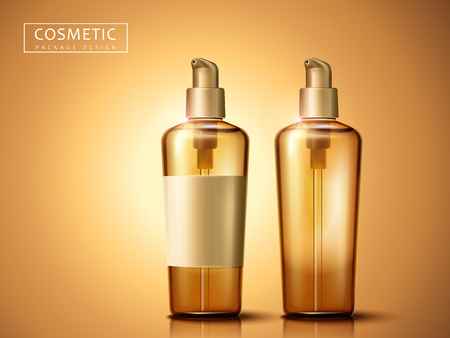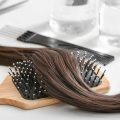Understanding Hard Water in Britain
Hard water is a common challenge faced by millions of households across the UK, particularly in regions such as London, the South East, and parts of the Midlands. This type of water is characterised by a high mineral content—mainly calcium and magnesium—which is picked up as rainwater travels through limestone and chalk-rich areas. While these minerals are not harmful to health, they can have a significant impact on hair quality and manageability.
The table below highlights the main effects of hard water on hair:
| Hard Water Effect | Description | Common Symptoms |
|---|---|---|
| Mineral Build-up | Calcium and magnesium accumulate on hair strands and scalp over time. | Dullness, limp hair, residue, difficulty lathering shampoo |
| Weakened Hair Structure | Minerals interfere with the natural cuticle layer, causing roughness. | Tangles, breakage, split ends |
| Scalp Irritation | Deposits can clog follicles and disturb scalp balance. | Dryness, itching, flakiness |
| Colour Fading | Minerals strip away colour molecules from dyed hair. | Brassiness, loss of vibrancy in coloured hair |
Given these persistent issues, it’s no surprise that many Brits actively seek out shampoos and conditioners specifically formulated for hard water. These specialist products are designed to combat mineral build-up, restore shine, and maintain healthy hair texture—making them an essential part of daily routines in hard water regions across Britain.
2. How Hard Water Impacts Hair & Scalp Health
Living in Britain, especially in areas notorious for hard water, means your haircare routine faces unique challenges. But what exactly does hard water do to your hair and scalp? Let’s delve into the science and signs behind the struggle—and how to spot when it’s time to refresh your shampoo and conditioner choices.
The Science Behind Hard Water & Hair
Hard water contains high levels of minerals, primarily calcium and magnesium, which interact with your hair products and natural oils. This leads to a build-up that can be tricky to remove with standard shampoos, leaving hair looking dull and feeling heavy.
Main Effects of Hard Water on Hair & Scalp
| Effect | Description | Typical Signs |
|---|---|---|
| Texture Changes | Mineral deposits roughen the hair cuticle, making strands feel coarse and brittle. | Frizz, tangling, lack of smoothness |
| Colour Dulling | Minerals react with dye molecules or natural pigments, leading to fading or brassiness—especially in blondes. | Lacklustre colour, yellowing or orange tones |
| Scalp Discomfort | Residual minerals can irritate the scalp, causing dryness or itchiness. | Flakiness, tightness, itching after washing |
| Product Build-up | Ineffective rinsing causes leftover shampoo or conditioner to cling to strands. | Limp roots, greasy feeling soon after washing |
| Poor Lathering | Hard water reduces the ability of shampoos to lather up properly. | Needing more product than usual; flat suds |
Time To Rethink Your Routine?
If you’ve noticed any of these signs—persistent dryness, breakage despite regular conditioning, or an itchy scalp—it’s a strong indicator that your standard routine isn’t cutting it against hard water. Upgrading to specially formulated shampoos and conditioners for hard water areas can restore softness, vibrancy, and scalp comfort. In the following sections, we’ll share expert recommendations tailored for British homes facing this all-too-common issue.
![]()
3. What to Look For: Key Ingredients in Hard Water Haircare
Choosing the right shampoo and conditioner for hard water areas in Britain isnt just about picking any product off the shelf. Expert stylists and trichologists agree that certain ingredients make a real difference when it comes to combating the harsh effects of mineral-rich water. Understanding these essential components will help you achieve healthier, more manageable hair.
Key Ingredients to Seek Out
| Ingredient | Benefits | Expert Recommendation |
|---|---|---|
| EDTA (Ethylenediaminetetraacetic acid) | Helps chelate or bind minerals like calcium and magnesium, preventing build-up on hair strands. | Look for as a top ingredient, especially in clarifying formulas. |
| Chelating Agents (e.g., citric acid, phytic acid) | Dissolve and remove mineral deposits, restoring softness and shine. | Ideal for weekly use to detoxify hair without excessive stripping. |
| Moisturising Oils (e.g., argan oil, coconut oil) | Nourish and protect hair from dryness caused by mineral-heavy water. | Choose conditioners with rich oils to maintain moisture balance. |
| Protein Complexes (e.g., hydrolysed keratin, silk proteins) | Strengthen weakened hair fibres, counteracting brittleness from mineral exposure. | Beneficial for colour-treated or damaged hair in hard water areas. |
| Sulphate-Free Surfactants | Cleanse gently without stripping natural oils or exacerbating dryness. | Avoid SLS/SLES; opt for gentler alternatives like sodium cocoyl isethionate. |
Labels and Certifications Worth Noting
- “Chelating” or “Clarifying”: Products labelled as such are specifically designed for hard water build-up removal.
- Sulphate-Free: Gentler on British hair textures, especially in regions with very hard water like London or Birmingham.
- Colour-Safe: If your hair is dyed, select formulas that protect against fading caused by minerals in hard water.
- Dermatologically Tested: Indicates suitability for sensitive scalps, which can be aggravated by mineral content.
Avoid These Common Culprits
- Sodium Lauryl Sulphate (SLS): Can intensify dryness and scalp irritation when combined with hard water minerals.
- Heavy Silicones: May lead to further build-up when not properly removed by chelating agents.
- Parabens & Artificial Fragrances: These can worsen scalp sensitivity already heightened by hard water exposure.
The British Perspective: Why Ingredient Choice Matters
The unique mineral composition of British tap water means that standard shampoos often fall short. Investing in formulas with expert-approved ingredients ensures your hair remains resilient, glossy, and free from stubborn residue—no matter how challenging your local water supply might be. Prioritise ingredient transparency on labels and consult with local salon professionals for region-specific advice.
4. Top Shampoos for Hard Water in the UK
If you live in a hard water area, you’ll know the struggle: mineral build-up can leave your hair feeling heavy, dull, and lacking vitality. The good news is that there are several shampoos available in Britain specifically formulated to combat the effects of hard water. Our expert recommendations focus on effectiveness, availability, and suitability for different hair types. Below is a curated list of the best shampoos designed to remove mineral residues, restore shine, and keep your hair looking its best even in challenging conditions.
| Shampoo | Key Benefits | Best For | Where to Buy |
|---|---|---|---|
| Malibu C Hard Water Wellness Shampoo | Effectively removes mineral deposits, vegan formula, gentle enough for daily use | All hair types, especially coloured or chemically-treated hair | LookFantastic, Amazon UK, Boots |
| Klorane Anti-Pollution Detox Shampoo with Aquatic Mint | Cleanses scalp deeply, neutralises odours, refreshes hair exposed to hard water and pollution | Oily scalp, urban dwellers | John Lewis, Space NK, Boots |
| L’Oréal Professionnel Serie Expert Metal Detox Shampoo | Removes copper and other metal particles from hard water, protects colour vibrancy | Coloured hair, salon-fresh results at home | Feelunique, LookFantastic, Salon Services |
| Paul Mitchell Clarifying Shampoo Three | Deep-cleansing formula designed to remove chlorine and mineral build-up without stripping moisture | Swimmers, fine or limp hair prone to heaviness | Amazon UK, Paul Mitchell salons |
| Aussie Mega Shampoo | Cleansing yet lightweight; helps remove residue while keeping hair bouncy and soft | Everyday use, normal to oily hair types | Sainsbury’s, Superdrug, Tesco |
| Philip Kingsley Pure Colour Frizz-Fighting Shampoo | Sulphate-free protection against minerals; ideal for frizz-prone and coloured hair in hard water areas | Colour-treated or frizzy hair needing extra care | Cult Beauty, M&S Beauty Hall, Harvey Nichols |
| TRESemmé Deep Cleansing Shampoo | Budget-friendly clarifying solution that lifts away stubborn residue without weighing down hair | Larger households or frequent shampoo users on a budget | Tesco, Asda, Boots |
Expert Tip:
If you notice your shampoo isn’t lathering well or your hair feels unusually heavy after washing, it could be due to hard water minerals lingering on your strands. Incorporating one of these targeted shampoos into your weekly routine can dramatically improve your hair’s texture and shine.
How to Get the Best Results:
- Rotate: Use a clarifying shampoo once or twice a week alongside your regular hydrating shampoo.
- Pamper: Follow up with a nourishing conditioner or mask to lock in softness and hydration.
- Pair Up: For ultimate protection against hard water damage, consider using the matching conditioner from your chosen range.
- Bespoke Solutions: If you have very specific needs—like sensitive scalps or curly textures—look for formulas tailored to those concerns.
The British Difference:
The shampoos above are all readily available across the UK—whether you shop online or prefer high street chemists. Each one is trusted by British stylists and beauty editors alike for tackling the unique challenges posed by hard water from London to Manchester. Try one out and see how much fresher and more vibrant your hair can look!
5. Best Conditioners to Pair with Hard Water Shampoos
Living in Britain’s hard water zones can leave hair feeling dry, tangled, and lacking lustre—even with a targeted shampoo. That’s why choosing the right conditioner is equally crucial. Our expert picks below are designed to complement your hard water shampoo, delivering hydration, smoothing frizz, and restoring manageability even in areas plagued by limescale deposits.
Top Professional Conditioners for Hard Water Areas
| Product | Key Benefits | Best For | UK Availability |
|---|---|---|---|
| Kérastase Specifique Fondant Densité | Strengthens strands, boosts volume, and replenishes moisture lost to minerals | Fine or thinning hair needing body and softness | John Lewis, LookFantastic |
| Paul Mitchell Clean Beauty Everyday Conditioner | Smooths cuticles, detangles stubborn knots, and protects from further mineral build-up | All hair types, especially coloured or chemically treated hair | Feelunique, Sally Beauty UK |
| Aussie Miracle Moist Conditioner | Packed with Australian macadamia nut oil for intense hydration and bounce | Dry, brittle hair craving deep moisture | Boots, Superdrug |
| L’Oréal Professionnel Serie Expert Metal Detox Conditioner | Neutralises metal particles from hard water, defends against dullness and breakage | Colour-treated or highlighted hair exposed to frequent washing | LookFantastic, HQ Hair UK |
| Aveda Rosemary Mint Weightless Conditioner | Lightweight formula invigorates scalp while ensuring tangle-free lengths and shine | Normal to oily hair seeking daily freshness without heaviness | Aveda UK, Cult Beauty |
Expert Tips for Maximum Results in British Hard Water Regions:
- Pair with matching shampoo: Consistency matters—using the same brand or complementary formulas ensures ingredients work synergistically against mineral residue.
- Leave-in time: Allow the conditioner to sit for at least 2-3 minutes for deep penetration and smoothing of the cuticle.
- Cool rinse: Finish with cool water to help seal the cuticle and lock in moisture despite hard water exposure.
- Treat weekly: Incorporate a weekly hydrating mask or leave-in treatment for extra resilience and shine in limescale-heavy areas.
Your Routine Refined: Why the Right Conditioner Makes All the Difference in Britain’s Hard Water Landscape
The right conditioner doesn’t just detangle—it actively combats the effects of calcium and magnesium salts that make British tap water so tough on your tresses. Investing in a salon-quality or expert-approved formula will ensure that softness, shine, and manageability stay within reach—even if you’re living in London, Manchester, or any region where hard water is the norm.
6. Pro Tips: Haircare Routines for Britons in Hard Water Areas
Maintaining vibrant, healthy hair in Britains hard water regions requires more than just the right shampoo and conditioner. According to leading UK stylists, a holistic approach is key to combating mineral build-up, dullness, and dryness caused by limescale-laden tap water. Here are expert-approved rituals and routines tailored for British hair concerns:
Weekly Rituals for Resilient Hair
Consistency is essential. Integrating weekly treatments and protective habits can dramatically improve hair texture and shine even in the hardest of water areas.
| Routine | Frequency | Stylist’s Tip |
|---|---|---|
| Clarifying Shampoo | Once a week | Removes mineral and product build-up; follow with a hydrating mask. |
| Deep Conditioning Mask | 1-2 times a week | Opt for masks with chelating agents or nourishing oils. |
| Chelating Treatment | Every 2-4 weeks | Book an in-salon chelating service for intense detoxification. |
| Scalp Exfoliation | Fortnightly | Use gentle scrubs to prevent flakiness and encourage growth. |
Salon Services Designed for UK Water Conditions
Many British salons now offer specialised treatments to combat the unique challenges of hard water. Ask your stylist about:
- Chelating Services: These professional-grade formulas break down stubborn minerals that regular shampoos cant remove.
- K18 & Olaplex Rebonding Treatments: Restore strength and elasticity lost to mineral-induced damage.
- Bespoke Colour Protection: Salons may use colour-safe detoxing solutions that shield blonde or coloured hair from brassiness caused by iron and copper deposits.
Lifestyle Tweaks for Extra Protection
- Install a Shower Filter: A simple showerhead filter can significantly reduce the amount of calcium and magnesium reaching your hair.
- Avoid Overwashing: Stick to 2-3 washes per week to preserve natural oils and prevent excess dryness.
- Towel Dry Gently: Swap rough towels for microfibre cloths to minimise friction on weakened strands.
- Finish With Cool Water: A quick cool rinse at the end helps seal the cuticle, keeping minerals out and shine in.
Your Stylist-Backed Weekly Schedule Example
| Day | Product/Action |
|---|---|
| Monday | Sulphate-free shampoo + lightweight conditioner |
| Wednesday | Damp hair spritz with leave-in conditioner; avoid washing if possible |
| Friday | Clarifying shampoo + deep conditioning mask (leave on 10-20 minutes) |
| Sunday | Mild scalp exfoliation + regular conditioner; air dry naturally if weather permits |
The secret to thriving hair in Britain’s hard water zones lies in adopting these pro techniques—combining quality products, smart routines, and occasional salon expertise ensures your locks stay glossy, manageable, and full of life year-round.
7. Frequently Asked Questions About Hard Water Haircare in the UK
Addressing Common Queries from British Consumers
Hard water is a widespread concern across many regions in Britain, leading to frequent questions about how it affects hair and what really works to combat its effects. Below, we tackle some of the most commonly asked questions, dispel prevalent myths, and offer expert guidance tailored for UK residents.
Top FAQs on Hard Water Haircare
| Question | Expert Answer |
|---|---|
| Does hard water really damage my hair? | Yes, hard water contains high mineral content (mainly calcium and magnesium) that can leave residue, making hair feel dry, heavy, or dull. Over time, it may also contribute to scalp irritation and colour fading for dyed hair. |
| Will any shampoo work against hard water? | No. Not all shampoos are formulated to tackle mineral build-up. Look for clarifying shampoos, chelating agents, or products specifically labelled as ‘hard water’ solutions. |
| How often should I use a clarifying shampoo? | Generally, once a week is sufficient for most people living in hard water areas. Overuse can strip natural oils, so balance with a nourishing conditioner. |
| Is it necessary to buy both shampoo and conditioner designed for hard water? | For best results, yes. While a hard water shampoo removes mineral build-up, a matching conditioner restores moisture and smoothness lost during cleansing. |
Busting Myths & Clarifying What Works
- Myth: Vinegar rinses are the only solution.
Fact: While apple cider vinegar can help remove residue occasionally, professionally formulated shampoos and conditioners offer safer, more consistent results. - Myth: Installing a water softener is the only effective method.
Fact: While helpful, specialised haircare products provide an accessible alternative without major home renovations.
Quick Tips for Managing Hard Water Hair
- Rinse hair thoroughly after each wash to reduce mineral deposits.
- Avoid over-washing; instead focus on quality products tailored for British hard water conditions.
- If possible, use filtered or bottled water for your final rinse—especially if you have coloured or chemically treated hair.
The right combination of targeted shampoos and conditioners—alongside practical care tips—can help British consumers keep their hair healthy, shiny, and resilient despite challenging water conditions.


